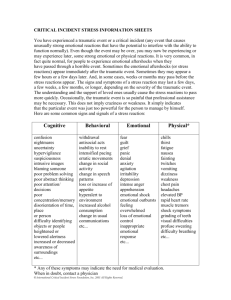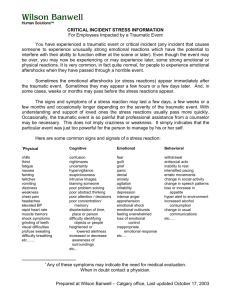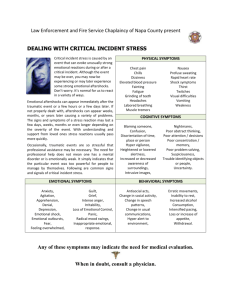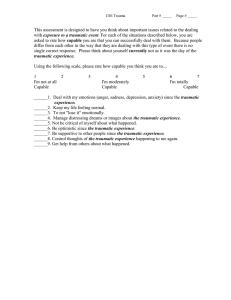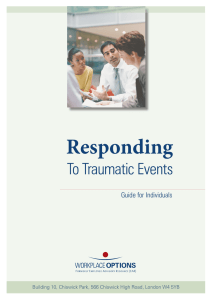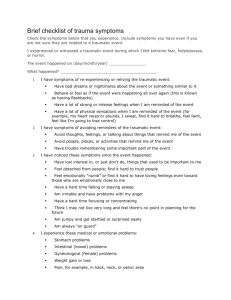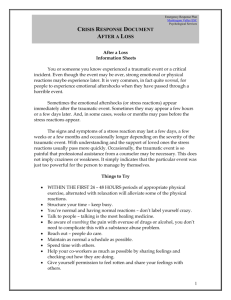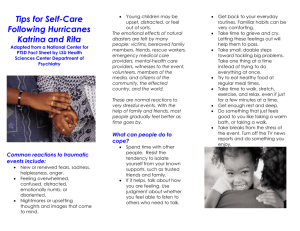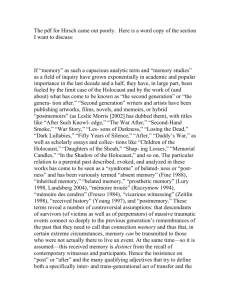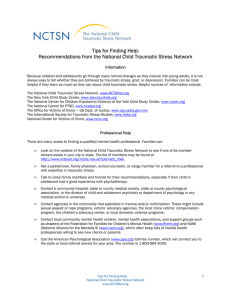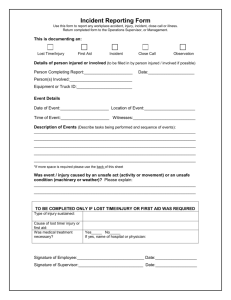Critical Incident Stress Management
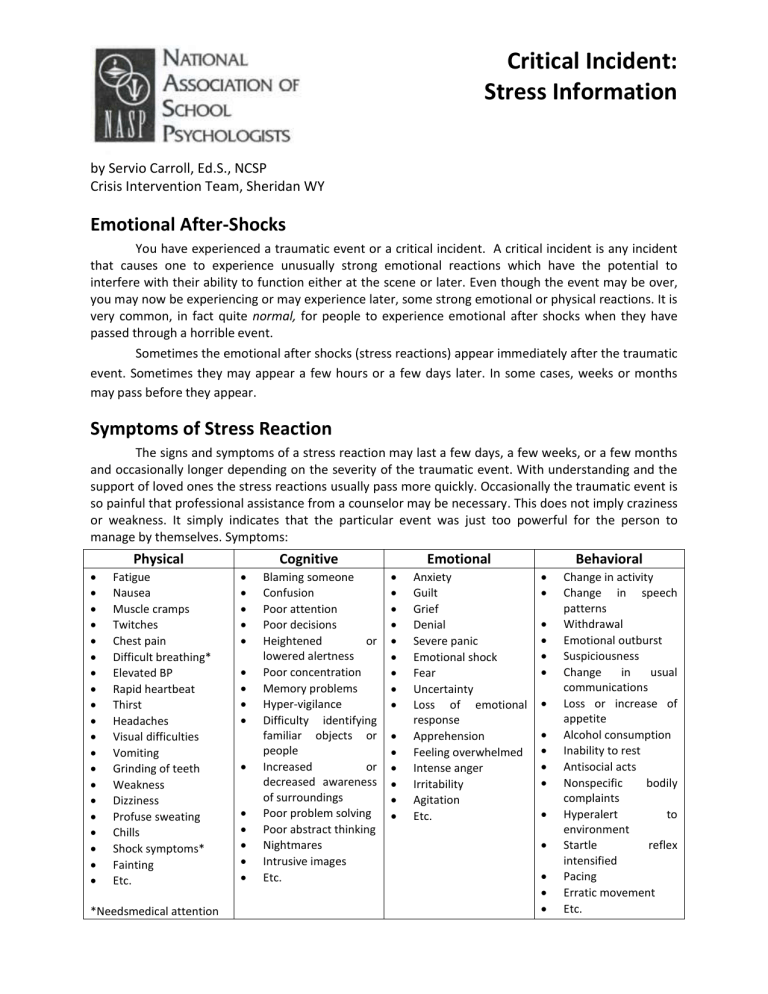
Critical Incident:
Stress Information
by Servio Carroll, Ed.S., NCSP
Crisis Intervention Team, Sheridan WY
Emotional After-Shocks
You have experienced a traumatic event or a critical incident. A critical incident is any incident that causes one to experience unusually strong emotional reactions which have the potential to interfere with their ability to function either at the scene or later. Even though the event may be over, you may now be experiencing or may experience later, some strong emotional or physical reactions. It is very common, in fact quite normal, for people to experience emotional after shocks when they have passed through a horrible event.
Sometimes the emotional after shocks (stress reactions) appear immediately after the traumatic event. Sometimes they may appear a few hours or a few days later. In some cases, weeks or months may pass before they appear.
Symptoms of Stress Reaction
The signs and symptoms of a stress reaction may last a few days, a few weeks, or a few months and occasionally longer depending on the severity of the traumatic event. With understanding and the support of loved ones the stress reactions usually pass more quickly. Occasionally the traumatic event is so painful that professional assistance from a counselor may be necessary. This does not imply craziness or weakness. It simply indicates that the particular event was just too powerful for the person to manage by themselves. Symptoms:
Physical
Fatigue
Nausea
Muscle cramps
Twitches
Chest pain
Difficult breathing*
Elevated BP
Rapid heartbeat
Thirst
Headaches
Visual difficulties
Vomiting
Grinding of teeth
Weakness
Dizziness
Profuse sweating
Chills
Shock symptoms*
Fainting
Etc.
*Needsmedical attention
Cognitive
Blaming someone
Confusion
Poor attention
Poor decisions
Heightened or lowered alertness
Poor concentration
Memory problems
Hyper-vigilance
Difficulty identifying familiar objects or
people
Increased or decreased awareness of surroundings
Poor problem solving
Poor abstract thinking
Nightmares
Intrusive images
Etc.
Emotional
Anxiety
Guilt
Grief
Denial
Severe panic
Emotional shock
Fear
Uncertainty
Loss of emotional response
Apprehension
Feeling overwhelmed
Intense anger
Irritability
Agitation
Etc.
Behavioral
Change in activity
Change in speech patterns
Withdrawal
Emotional outburst
Suspiciousness
Change in usual communications
Loss or increase of appetite
Alcohol consumption
Inability to rest
Antisocial acts
Nonspecific bodily complaints
Hyperalert to environment
Startle reflex intensified
Pacing
Erratic movement
Etc.
Consider These Suggestions for the First 24 to 48 Hours:
Alter periods of exercise with periods of relaxation.
Structure your time, keep busy.
Reassure yourself that you are normal and having normal reactions. Don’t label yourself crazy.
Talk with others. Talking about it is healing.
Avoid caffeine: coffee, chocolate, tea, sodas, etc.
Reach out. People do care. Spend time with others.
Maintain as normal a schedule as possible.
Avoid the use of drugs and alcohol. Don’t complicate the problem with substance abuse.
Give yourself permission to feel rotten. It’s normal.
Keep a journal, write through those sleepless hours.
Do things that feel good to you.
Realize that those around you are also under stress.
Don’t make any bid life changes.
Do make routine daily decisions. Regain control.
Eat regular meals, even if you don’t feel like it.
Get plenty of rest, as much as you can.
Flashbacks are normal, don’t fight them. They’ll decrease in time and become less painful.
Resources
Seek professional help from a mental health provider or your physician if you feel overwhelmed.
It’s okay. They are trained to help you deal with these strong emotional reactions. It’s not a sign of weakness.
